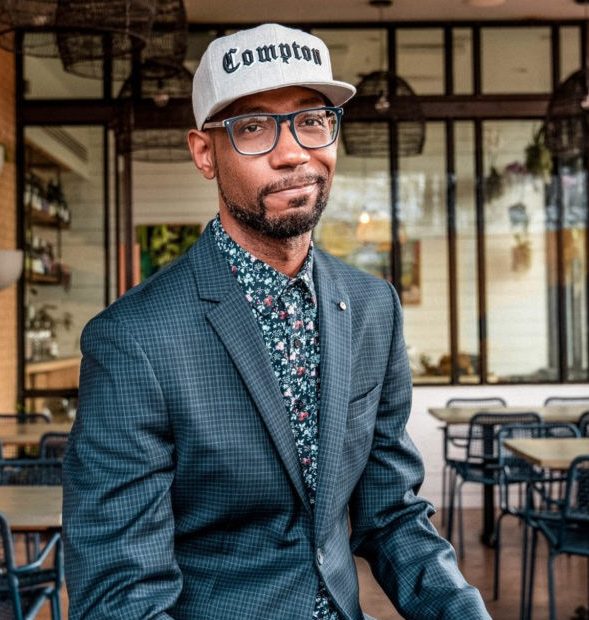The journey to get where INROADS Alumnus Anthony D. Mays is today wasn’t easy. Born in Compton and raised in foster homes after suffering abuse, he has overcome many challenges and roadblocks. Anthony persevered through sheer tenacity and inner strength drawn from mentors and support networks, including INROADS, which turned out to be a pivotal experience that changed the trajectory of his life.
After spending eight years as one of only a handful of Blacks in a very coveted software engineer position at Google, Anthony left to pursue full-time entrepreneurship as founder of Morgan Latimer Consulting. He is also partnering with Karat’s Brilliant Black Minds initiative, backed by tennis champion Serena Williams, and focused on doubling the number of Black engineers in tech. His goal is to bridge the gap between the underrepresented and companies looking to hire exceptional talent. As a speaker and career coach, he excels at weaving his inspirational story of perseverance into rich, thought-provoking conversations about inclusion in tech, employing candor, humor, and vulnerability to reach both minds and hearts. Anthony shared his story with us, describing how his passion for computers and desire to create a more inclusive tech industry motivated him to keep going.
Tell us a little bit about your life growing up.
I grew up in Compton, California, as a foster kid. A kindergarten teacher discovered that I had been a victim of physical and sexual abuse, and I ended up going through the foster care system. I got separated from my two younger brothers, who went to their own group homes, and I was moved among different foster homes several times. Fortunately, we were eventually brought together under one roof, so we were able to grow up together as a family.
The years prior to college were an interesting time in life for me as I wondered about what I wanted my life to be and where I wanted to go. I came upon this idea that computers and technology might be a path forward.
“So, I taught myself how to code when I was eight years old on a toy computer.”
At eight years old, you had an aha moment that “computers are for me.” How did that happen at such a young age?
Many of the cartoons and TV shows I watched as a kid featured computers prominently as a gimmick or MacGuffin. I fondly remember things like the bat computer. (I often joke that Batman was the blackest person that I saw on TV using computers.) So, I wanted to build my own bat computer. Everybody knows Batman doesn’t have superpowers. His ability comes from his strength, intelligence, and the tools he has at his disposal. I thought computers granted me a kind of superpower. If I could learn and figure out how to use them, I felt powerful. Learning how to build and conceptualize things in code gave me a feeling of control and agency. As a foster kid who had lost all sense of control, having had my entire family ripped apart from me at one point, having control over something in my life meant everything. Computers gave me that.
How did you continue building your knowledge about computers?
At first, it was a frustrating journey because I wanted to move beyond the toy. I needed resources, training, and teaching to help me understand this larger world of computers. Unfortunately, though, being in Compton, I felt like the city was a real information desert. This is before the internet had really taken off. So, I had to rely on the local library, which had books that were a decade old. Even with the books, I didn’t have the tools to implement exercises and continue this self-teaching journey. At one point, I even gave up on coding.
Fortunately, I had a computer lab instructor in middle school and a computer lab administrator in high school, both of whom mentored me through those school years, teaching me things about computers. They taught me everything about how the internet works, including what “www” means, how to build, run, and administer a computer, and how to work with network cables. I had the opportunity to volunteer at local schools in the L.A. area to sharpen my skills and gain experience. By the time I encountered the INROADS program, I was well on my way to starting a career in this space. I was just looking for the first opportunity for this Compton kid to show what more he could do.
How were you introduced to INROADS, and what impact did it have on your career?
I didn’t find INROADS. INROADS found me. I was walking around my college campus at lunch and encountered a room where a gentleman by the name of Bryan Barnes was meeting with some fellow students. He sees me at the door, invites me in, and asked me if I wanted a career. He was asking a Black kid from the hood if he wanted a career, and I said, “Yeah, I want a job! I want a career.” The idea of a career was especially attractive because I knew there was a difference between a job and a career. So, I sat in on the INROADS information session, and I signed up. My parents were also very keen to keep their eyes open for every opportunity that presented itself, considering the meager education opportunities that we had in Compton. When INROADS came along, I knew that I needed to think about it as a rare opportunity to do something different, so I joined the program. I was pleasantly surprised to be offered a software internship with City National Bank through INROADS, where I built a fruitful and productive mentoring relationship with my boss.
Did you encounter any barriers while building your career in tech?
It’s interesting to think about it. The corporate world is not just this place where I can build a career and earn an income, but it’s also a place that is hostile to people who look like me and who come from where I come from. There was trepidation and fear on my part, and a great sense of caution, and even paranoia, about who I’m working with and whether they have my best interest at heart. My goal was to fit in as much as I possibly could. Therefore, there was this learning process of gaining the knowledge to succeed on the job but then also fitting into this new culture and new style of working with people of varying ages. I was the youngest person on the floor being surrounded by adults who had gone to college and had their own families. I was constantly comparing myself to other people. I always saw myself as not being where they are, and I wanted to do whatever I could to catch up. This motivated me to move forward.
We call it “impostor syndrome” in the industry. Even to this day, I continue to struggle with that, but INROADS armed me with the knowledge that I needed to work hard, but I could also lead.
INROADS taught me how to be inquisitive and to take ownership of my own learning. So, even if no one was around to teach me in the moment, I would know how to pull in resources and ask questions to excel. Because of that training and excelling in my summer internships, I received the INROADS Lorenz Tovar “Intern of the Year” award for exemplary corporate and community service as an intern.
You’ve had incredible success, including achieving a position in Google. Can you tell us about that experience?
After about a decade of building my career at City National Bank, Junction Solutions, and Slalom Consulting, a big thing happened in 2011. I had the opportunity to interview with Google, which is everybody’s dream company. I took the chance, did the interview, and I failed. That was a hard time to endure. I felt like I had let down myself and all Black people everywhere. I felt I had let down my church, my community, and my family. It felt like I had reached the ceiling – the glass ceiling. It took people investing in me, believing in me, and encouraging me to try again. I endured the interview process again and successfully won an offer. A lot of what I needed to be at Google, I learned from my formative years and in the INROADS program.
What are two highlights from your career that you are most proud of?
One highlight I’m most proud of was being named on the patent for banking technology while I worked at City National Bank as a full-time employee. I remember that it meant so much to me because I grew up inspired by Black innovators of the past, and I couldn’t find or see those Black innovators in the present. I was inspired by people like Garrett A. Morgan and Lewis H. Latimer, after whom my own company is named now. The fact that these were patented inventors who innovated during times of slavery, Jim Crow, and the mass lynching of Black people became my inspiration. Because of their example, I felt that I, too, could become a patented inventor, so when that happened, it was very, very meaningful to me and a validation that I was heading in the right direction. The second most meaningful moment was passing the Google interview. Getting a job at Google is one of the hardest things to accomplish, and it is one of the most coveted roles in the tech world. Being able to ascend that high in my career felt like such an important validation. I accomplished something as rare as coming up as a foster kid in the hood and becoming a software engineer at Google. That story continues to inspire people all around the world, and for me, it’s an honor to be able to say that I accomplished that.
Finally, what is one piece of advice you would give to a student?
Take every risk you can, and don’t be afraid to succeed.

